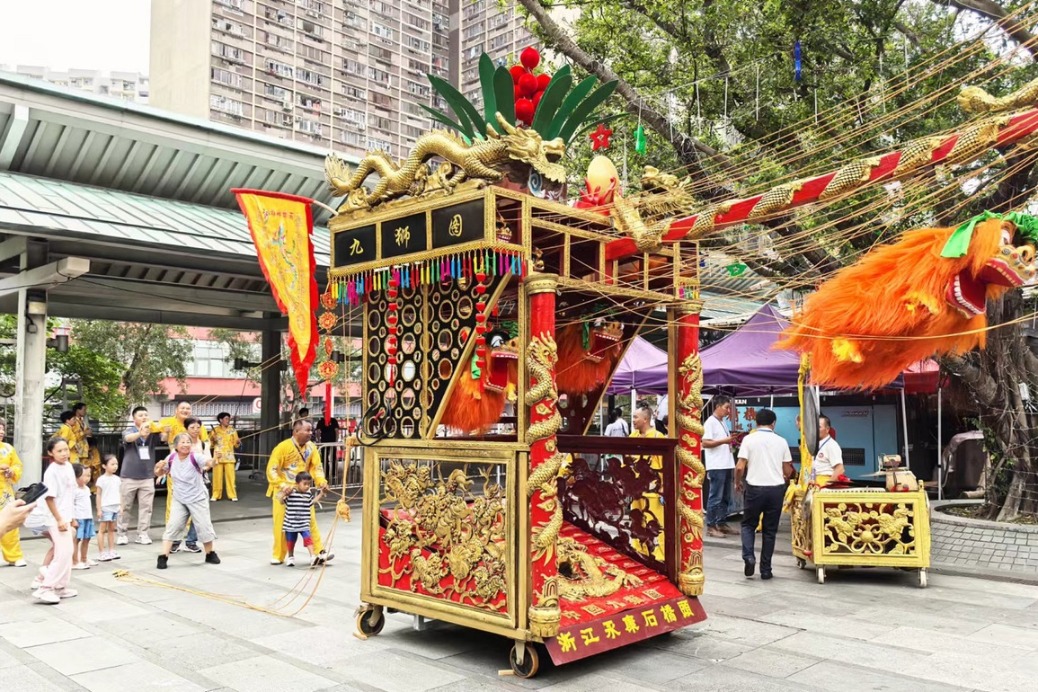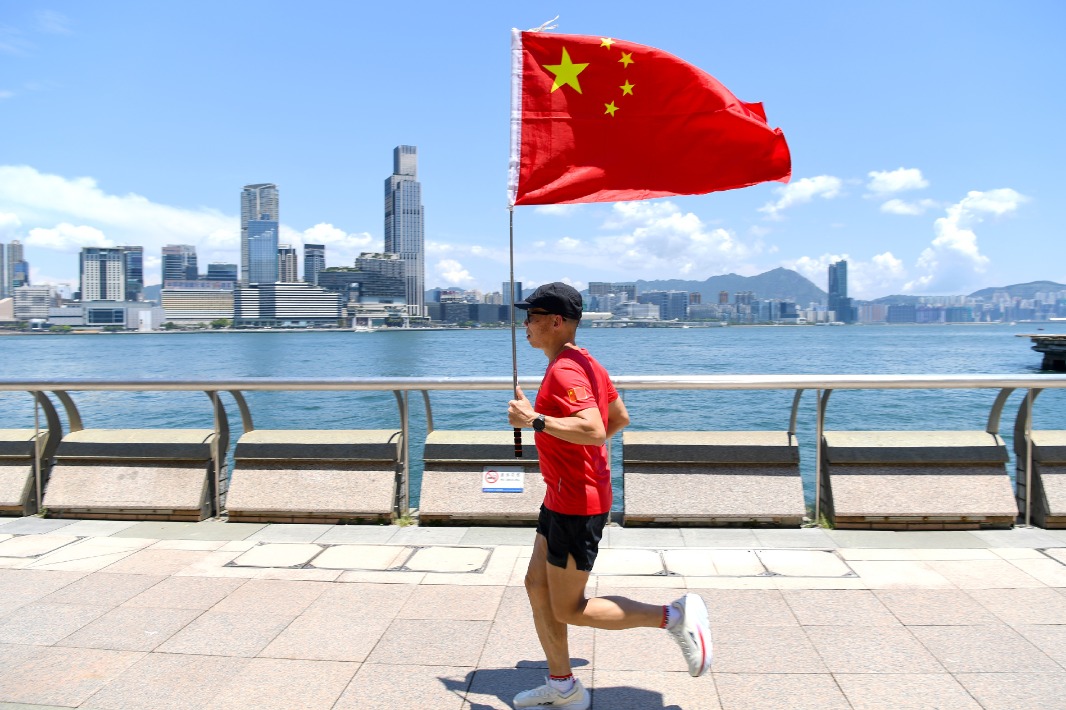Solidarity underscored at China-Central Asia summit


The China-Central Asia Summit embodies solidarity, win-win and shared prosperity, analysts said, while the United States-led Group of Seven meeting features a Cold War mentality, sanctions and confrontation.
Zafar Uddin Mahmood, special assistant to the prime minister of Pakistan and president of the Understanding China Forum, said the China-Central Asia Summit discussed "peace, development, cooperation and common prosperity and brighter future of the people in the area", but the Group of Seven conference held in Japan was talking about "sanctions, confrontation, pessimism, decoupling, exclusiveness and disengagement".
The former special envoy for the China-Pakistan Economic Corridor also said that on the basis of trust and confidence built during the past decade, this summit will accelerate cooperation in every area.
"The choice is obvious for the rest of the world: Perpetual wars and chaos versus peace, connectivity, trade and development," said S.L. Kanthan, a geopolitical analyst based in Bengaluru, India.
The expert said the China-Central Asia Summit in Xi'an was a genuine reflection of China's diplomatic, economic and cultural principles. "China embraces a multipolar world where every country and region is treated with equal respect and dignity," he said.
The US pretends to be on some sort of a noble mission, while constantly attacking China, he noted. However, the reality is starkly different: the China-Central Asia cooperation is an exemplary framework for all countries, and the key takeaway from it is the "focus on peace, trade, infrastructure, development and people or cultural exchange".
He said the US imposes a unipolar world, with itself as the dictatorial hegemon. "China promotes cooperation and trade; the US spreads conflicts and wars," Kanthan said.
Moreover, "China promotes wholesome culture and traditional values; the US spreads destructive hedonism and divisive identity politics".
The Indian expert emphasized the US slogan of "freedom and democracy" is Orwellian New-speak for chaos and destruction. The US strategy is to divide and rule — as seen in the conflict between Russia and Europe; or in the attempts to foment a new war in Asia. "The ultimate goal here is to disrupt the rise of China, Asia, and Eurasia," he said.
As indicated by the Xi'an Declaration at the end of the China-Central Asian Summit and symbolized by the new Silk Road, the Belt and Road Initiative, China's geopolitical model is predicated on peace and development. "It's a win-win," he explained.
Mutual respect
Mahmood said that for China and Central Asia, this regional model based on mutual respect, understanding, support and cooperation will be an example for others to follow and will ensure peace, stability and prosperity for all.
"What impressed me most about the conference is the spirit of optimism, harmony, cooperation, inclusiveness, engagement and stability," Mahmood said.
Karori Singh, former director and emeritus fellow of the South Asia Studies Centre at India's University of Rajasthan, also noted the different orientation of China-Central Asia Summit which opened a day before the G7 Summit in Hiroshima, Japan.
"In comparison, the China-Central Asia Summit is aimed at further strengthening the unity and solidarity of the region by jointly building the Belt and Road Initiative," he said. "The collaborative efforts in expanding the BRI are important steps in making these countries nostalgic for the glorious ancient Silk Route."





































